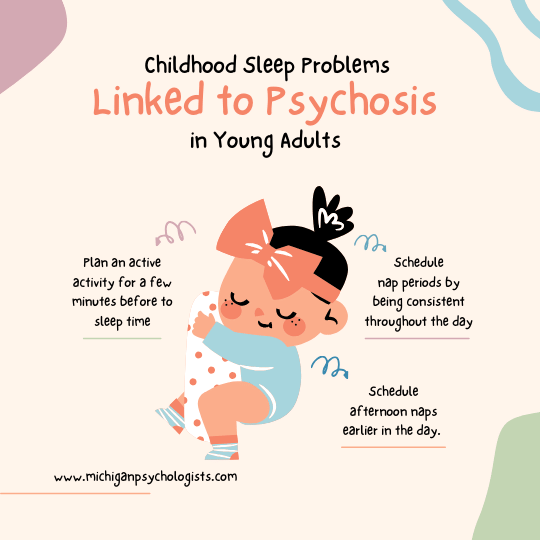Childhood Sleep Problems Linked to Psychosis in Young Adults: Insights and Tips for Better Sleep

Table of Contents
Struggling with sleepless nights and wondering about their long-term impact? Recent research from the University of Birmingham reveals a startling connection between childhood sleep problems and the development of psychosis in young adults. This study underscores the critical importance of fostering healthy sleep habits early in life to safeguard mental health. Read on to discover how sleep issues in children can have far-reaching effects and what steps you can take to create a better sleep environment for your kids.
The Sleep Research Findings
The study analyzed data from over 12,000 children and found a significant association between chronic sleep problems in childhood and an increased risk of psychosis in young adulthood. Specifically, children who experienced persistent sleep deprivation were more than twice as likely to develop psychotic disorders later in life. These findings highlight the necessity of early intervention and the implementation of good sleep hygiene practices to support long-term mental health.
Why Sleep Matters
Quality sleep is vital for physical growth, cognitive development, and emotional regulation in children. Insufficient or disrupted sleep can lead to various issues, including behavioral problems, impaired learning, and increased susceptibility to mental health conditions. By addressing sleep problems early, parents can help mitigate these risks and promote overall well-being.
Tips for Creating a Better Sleeping Environment for Children
- Consistent Sleep Schedule: Establish a regular bedtime and wake-up time, even on weekends, to regulate your child’s internal clock.
- Comfortable Sleep Setting: Ensure the bedroom is cool, quiet, and dark. Consider blackout curtains and white noise machines if necessary.
- Bedtime Routine: Develop a calming pre-sleep routine, such as reading a book, taking a warm bath, or practicing relaxation techniques.
- Limit Screen Time: Reduce exposure to screens at least an hour before bedtime to avoid the stimulating effects of blue light.
- Healthy Diet: Avoid caffeine and heavy meals close to bedtime. Opt for light snacks if your child is hungry before bed.
- Physical Activity: Encourage regular exercise, but ensure it’s not too close to bedtime as it can interfere with falling asleep.
- Positive Sleep Associations: Reserve the bed for sleep and avoid using it for activities like homework or playing games.
The link between childhood sleep problems and psychosis in young adults is a compelling reason to prioritize good sleep hygiene from an early age. By creating a conducive sleep environment and establishing healthy habits, parents can play a crucial role in protecting their children’s mental health and setting the stage for a brighter, healthier future. Start implementing these tips today to ensure your child enjoys the restorative sleep they need for optimal development.
For more detailed information on the study, visit the University of Birmingham’s news article.